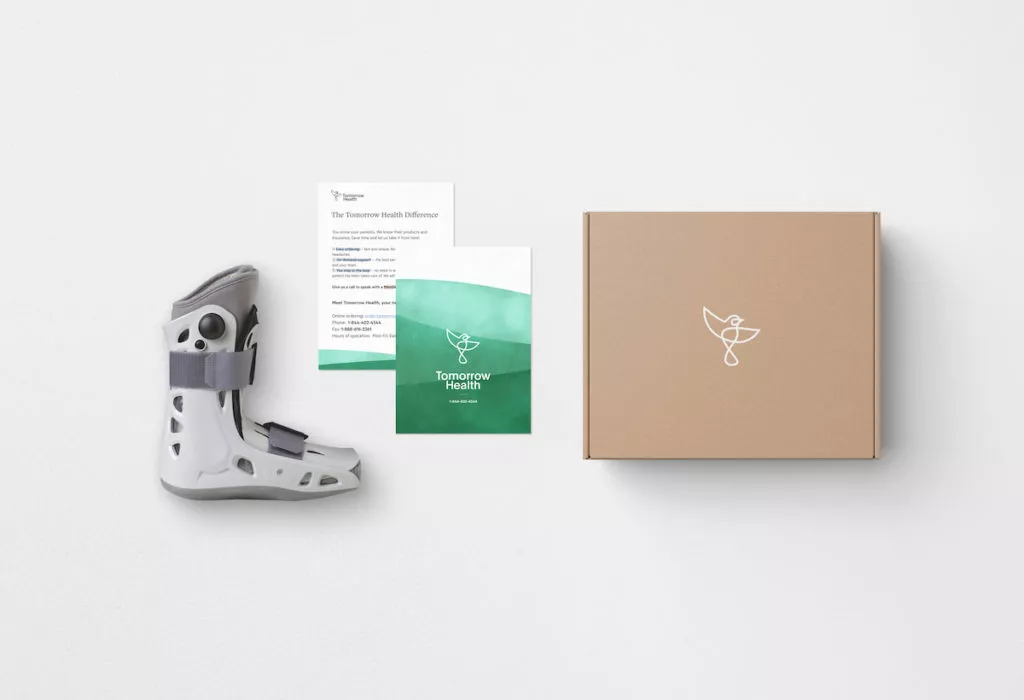Tomorrow Health — a new startup backed by venture capital firm Andreessen Horowitz — is building an Amazon-like service to help consumers and clinicians better navigate the often confusing in-home medical equipment landscape.
Home-based care providers, in particular, will play an essential role in Tomorrow Health’s business model, co-founder and CEO Vijay Kedar told Home Health Care News. That includes both Medicare-certified home health agencies and non-medical home care companies.
“Home care agencies and home health agencies do tremendous work to manage the end-to-end care of patients in the home, everything from helping them transition out of the hospital to keeping folks healthy in their homes,” Kedar said. “But one of the challenges we have consistently heard from those groups is the difficulty of obtaining and managing reliable — and consistent — medical equipment and supplies.”
Although its public launch officially came this week, Tomorrow Health has been operating for the past few months. Kedar and co-founder Gabriel Flateman planned to formally unveil their startup to the world later this summer, but accelerated the process due to the coronavirus.
Between 21% and 31% of COVID-19 patients in the U.S. have required hospitalization, with 5% to 11% needing intensive care, according to the U.S. Centers for Disease Control and Prevention (CDC). Of those who do need intensive care, some require ventilation.
Many of those individuals end up needing supportive respiratory equipment in their home following discharge.
“We recognized that it was necessary for us to get the word out about our services so that we could reach as many individuals and families as possible impacted by the crisis,” Kedar said.
As part of its business model, Tomorrow Health and its digital marketplace can deliver roughly 40,000 different types of medical supplies and equipment directly into the patient’s home within two days of an order. Examples of that medical gear include wheelchairs, walkers, ventilators and more.
Currently, Tomorrow Health operates across 24 states, with service paid for by private insurers and, at times, Medicare Part B. So far, the startup coordinates with more than 100 insurance providers on behalf of its customers.
Home-based care providers wanting to use Tomorrow Health’s services as part of their care plan simply have to connect with the startup via phone, fax or its digital platform, sharing relevant information about patients and their insurance. From there, Tomorrow Health “owns the rest of the process,” Kedar said.
“We’re going to coordinate with the patient’s physician to collect any prescriptions or additional information that’s needed,” he said. “We are going to manage the prior-authorization process. We’re going to identify the right bundle of equipment and supplies that are both covered by an individual’s particular insurance and best-suited for their needs. We are going to manage delivery directly to their home within two business days, with ongoing support.”
As Tomorrow Health establishes itself in the home-based care space, it does so with plenty of financial firepower. The startup’s seed round yielded $7.5 million in funding, led by Andreesen Horowtiz, which is no stranger to the in-home care market.
The VC giant is among the firms that invested in Honor, which has raised about $115 million since launching.
“I have been super excited to dig into this with Vijay over the last 18 months,” Flateman told HHCN. “One of the most important things for us was building a platform and an experience that met the needs of stakeholders wherever they were.”
In addition to being one of Tomorrow Health’s co-founders, Flateman also serves as its chief technology officer.
Firsthand experience
Prior to launching Tomorrow Health with Kedar, Flateman was the co-founder and CTO of sleep company Casper, which he helped scale to reach over $1 billion in cumulative sales.
Kedar, meanwhile, was previously an early employee and executive at technology-focused health insurance company Oscar Health, which has grown from a few dozen employees to more than 1,200 in just a few years. That experience helped lay the foundation for Tomorrow Health, Kedar said.
“From a professional standpoint, having worked at Oscar health on the insurance side, I saw as we innovated around care in the home there was this palpable pain point of [equipment and supplies] faced by different stakeholders,” he said.
Apart from his professional experience, Kedar also felt that pain point firsthand.
Five years ago, the co-founder’s mother was hospitalized battling Acute Respiratory Distress Syndrome (ARDS), a life-threatening lung condition she developed while immunocompromised from her cancer treatment. After spending four months in the ICU, Kedar’s mother was discharged home with a wide variety of equipment and supply needs.
“We needed to coordinate with over a dozen different providers to get everything she needed,” he said. “There was no guidance, no support.”
Moving forward, Tomorrow Health hopes to be in all 50 states by the end of the year.
Home health and home care agencies will help dictate that pace of that growth.
“We just had a meeting earlier this morning, specifically about all the inbound that we’ve received just this week from home health agencies and homecare agencies,” Kedar said. “To these organizations, we want to be a ubiquitous and reliable referral partner.”




